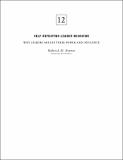Self-Defeating Leader Behavior: Why Leaders Misuse Their Power And Influence
Author(s)
Kramer, Roderick M.
DownloadCPL_WP_05_12_Kramer.pdf (162.4Kb)
Terms of use
Metadata
Show full item recordAbstract
Few concepts in the social sciences are invoked with the same ease or employed so readily to explain so
many social and institutional outcomes as power. The concept of power has been used to explain, for
example, how organizational resources are allocated (Pfeffer, 1992), how decisions are made (Neustadt,
1990), the control of attention (Fiske, 1993), behavioral disinhibition (Galinsky, Gruenfeld & Magee,
2003; Keltner, Gruenfeld & Anderson, 2003), and the resolution of conflict (Boulding, 1966, 1989), to
name just a few important processes and outcomes. The concept of power is routinely used, moreover,
not only to explain why such outcomes do happen, but also why they don’t. Russell’s (1938) observation
that power is a “fundamental concept” in the social sciences remains as true today as it was when he first
uttered it.
Date issued
2005-01-12Publisher
Center for Public Leadership
Series/Report no.
Center for Public Leadership Working Paper Series;05-12
Keywords
hks, cpl, kennedy school, leadership, misuse, self-defeating
Collections
The following license files are associated with this item: